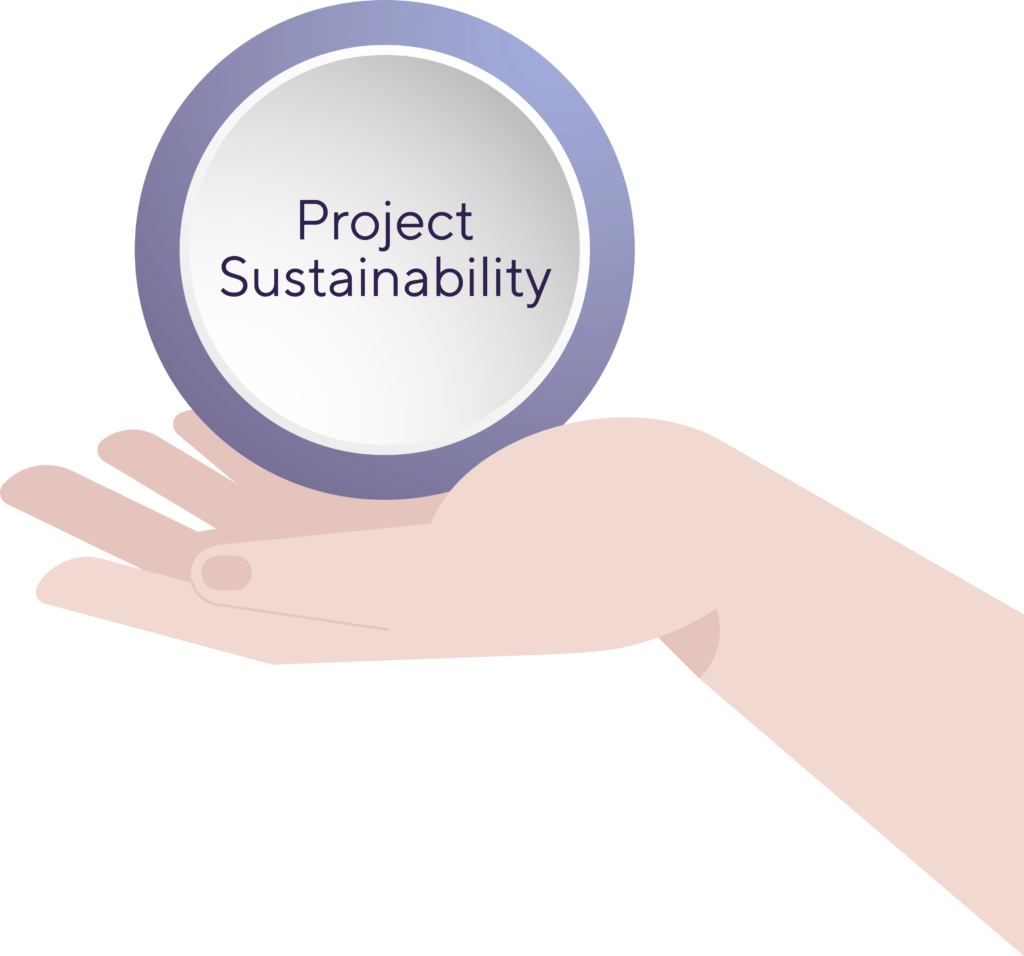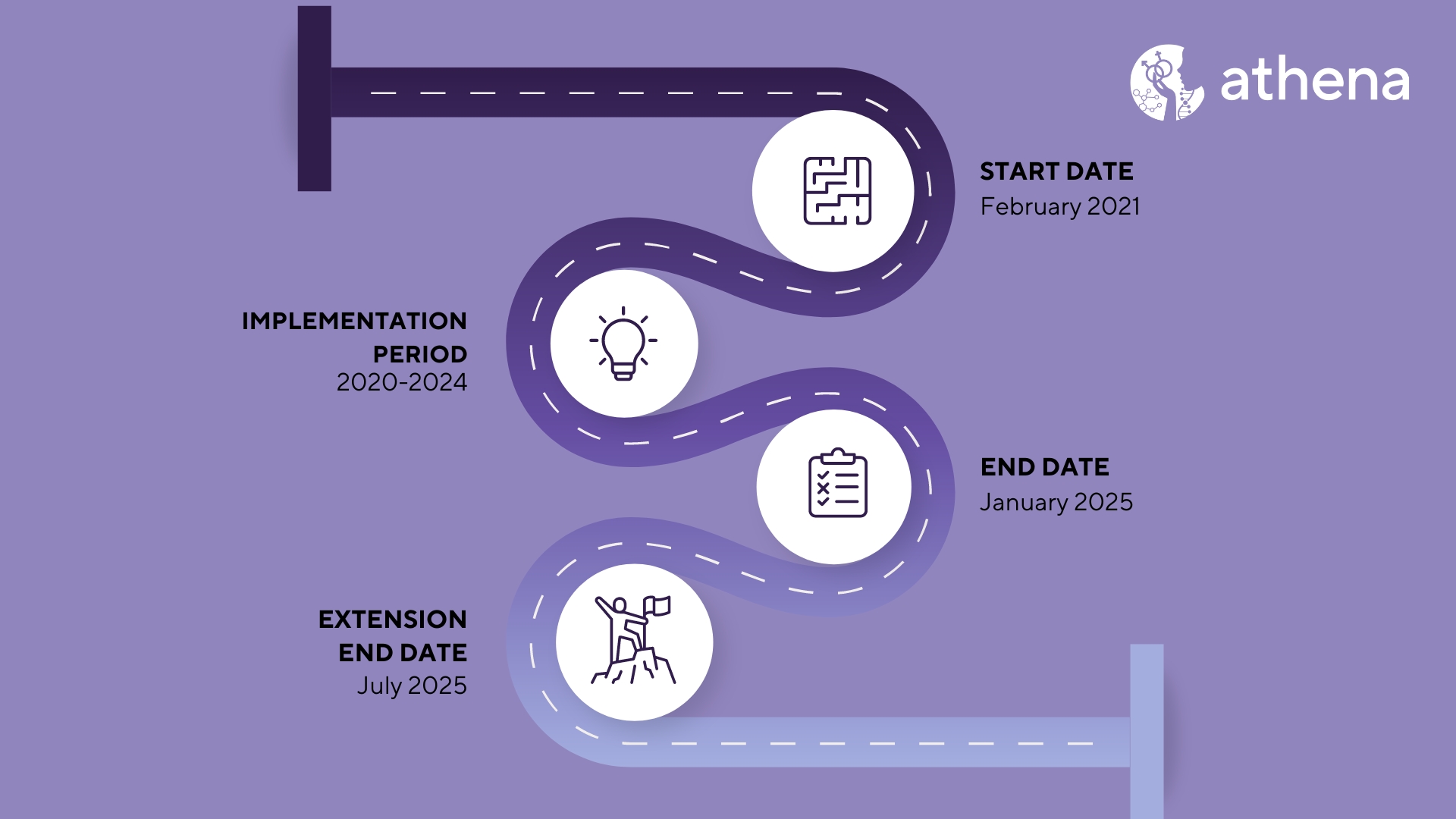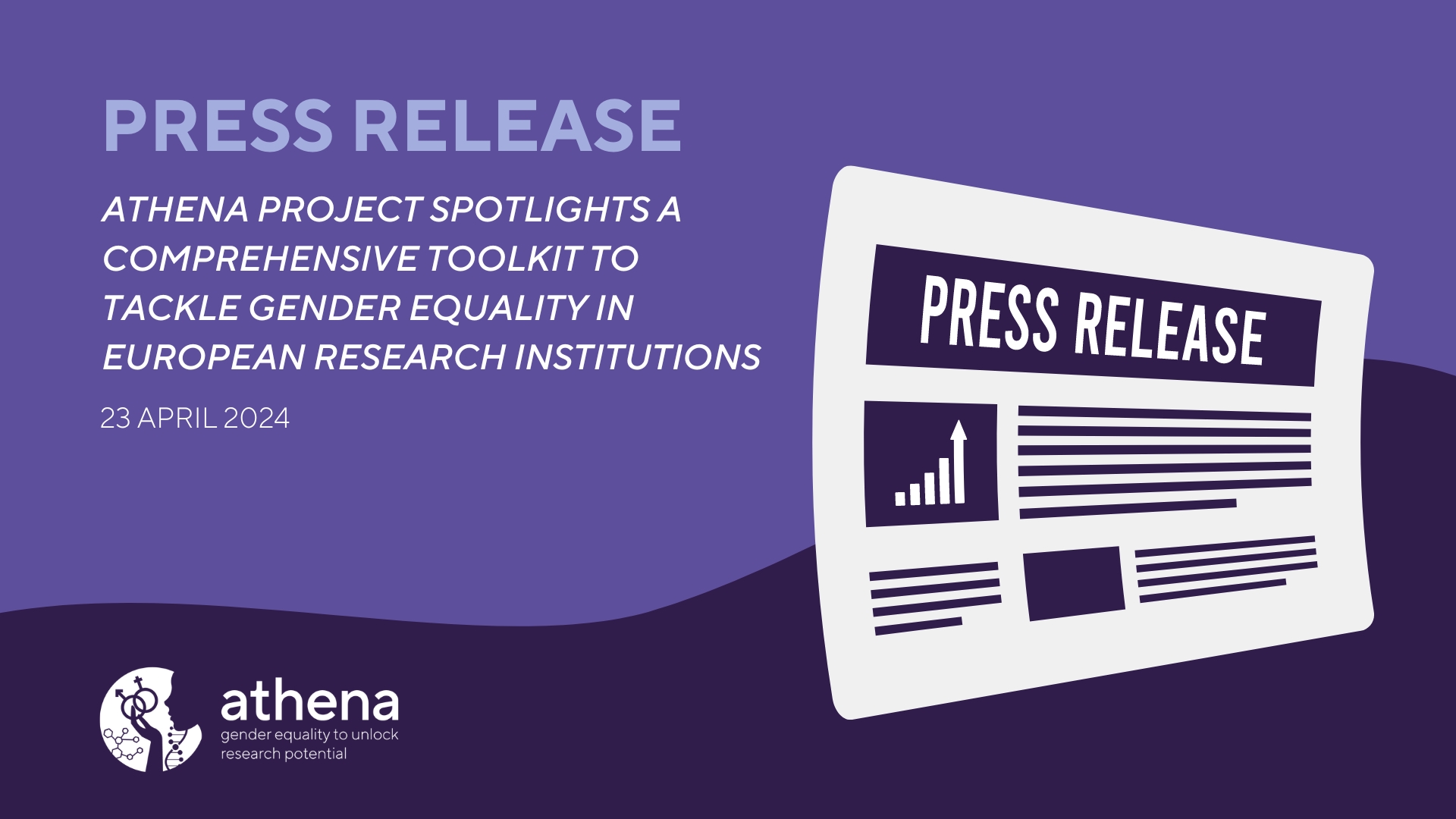
The ATHENA project consortium is implementing its sustainability strategy to ensure the replication of GEPs and project outcomes

Concerning the “Database of Stakeholders”, the database aims to collect and organize data pertaining to stakeholders that can be engaged in ATHENA for the purposes of dissemination and exploitation. Throughout the duration of the project, the database will be periodically updated, and only project members will have access to it. It is an instrument that has been organized using EUSurvey, and the ATHENA consortium can at any time add new stakeholders.
At the proposal stage, the ATHENA consortium conducted a comprehensive analysis of key networks and organisations to which they will disseminate project activities and outcomes. The list of previously identified networks and organisations has been supplemented by a thorough analysis under the stakeholder identification and involvement task. The process of engaging the identified stakeholders entails contacting each potential organisation and outlining the terms of reference for ATHENA activities, as well as the dissemination and response expectations for the organisation. The engaged stakeholders are already involved in actions designed to ensure the long-term viability of Gender Equality Plans (GEP) throughout the duration of the project and beyond.
The ATHENA project aims to engage diverse stakeholders within the Quadruple Helix framework (QH). Among the QH stakeholders, ATHENA will consider in greater detail:
- Academia & Research: universities, research performing organisations, research funding organisations, and sister projects;
- Administration & public sector: local, regional and national authorities (policymakers);
- Business and industry: STEM-related businesses, and start-up incubators, among others;
- Civil society: Women’s NGOs, networks, sister projects, and women’s associations.
Regarding the “Workshops report 1”, eight GEPs have been developed as a result of the ATHENA project, so eight local workshops with strategic stakeholders have been organized. Each workshop was an event open to all stakeholders identified in the Database, including professors, researchers, public authorities, and others.
The purpose of Workshop 1 was to present to the stakeholders the barriers and challenges and the solutions to overcome those encountered during the development of the GEPs and the activities that will be implemented thanks to the adoption of the GEPs. Thus, the stakeholders from the Database have been involved in the further replication of the gender equity achievements under the ATHENA project to other appropriate communities.
The speakers/moderators have been representatives of the ATHENA project, and have been involved in the development of the GEPs and other project documents. The venue was in a face-to-face format, virtual format or hybrid format. According to the project description, at least 20 stakeholders were expected to attend each event, and ATHENA partners were able to engage 305 of them in total. A second Workshop will be held in 2024 to demonstrate how promoting gender equality can unlock research potential, boosting organizational performance and unlocking research potential.
About establishing synergies with the EURAXESS initiative and network, the synergies and connections include the organisation of a webinar, entitled ‘Gender equality and researchers’ mobility – Synergies from EURAXESS initiative’ to 1) present the EURAXESS network, and more specifically their two initiatives for researchers: the Charter & Code (C&C) and the Human Resources Strategy for Researchers (HRS4R); 2) jointly discuss on the relevance of gender equality measures as an element of attractiveness for researchers and to engage them in a mobility experience.
The EURAXESS Webinar took place on 20 June 2022, online via ‘ZOOM Webinar’. Key speakers, apart from Michelle Perello, the ATHENA project coordinator, were contacted and invited to attend the webinar:
- Angela Balzano | MINDtheGEPs coordination team member—University of Turin;
- Slaven Misljencevic | EURAXESS Policy Officer – European Commission;
- Michele Rosa-Clot | HRS4R Portfolio manager – European Commission.
The discussion session was enriched with the participation of:
- Ivana Radonova, ATHENA Advisory Board member from the Ministry of Education and Science of Bulgaria
- Mark de Vos, EURAXESS Bridge Head for Denmark.
Originally, it was planned to attract 40 participants, but we have managed to attract over 50 attendees from 16 countries in Europe, Asia, and North America.
The event was considered successful, not only for the number of participants but also for the content of the presentations and the discussion held at the end of the event.
















